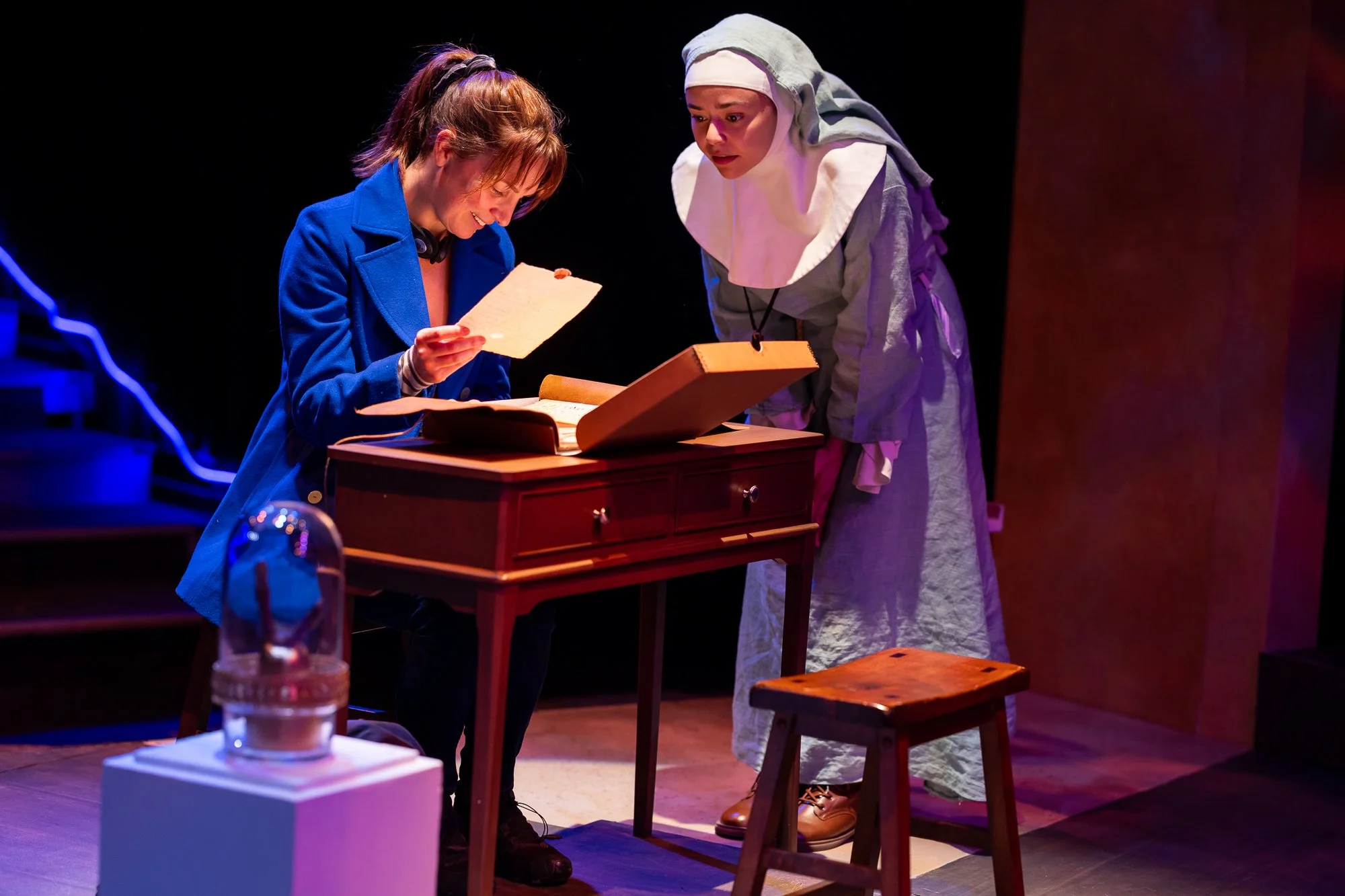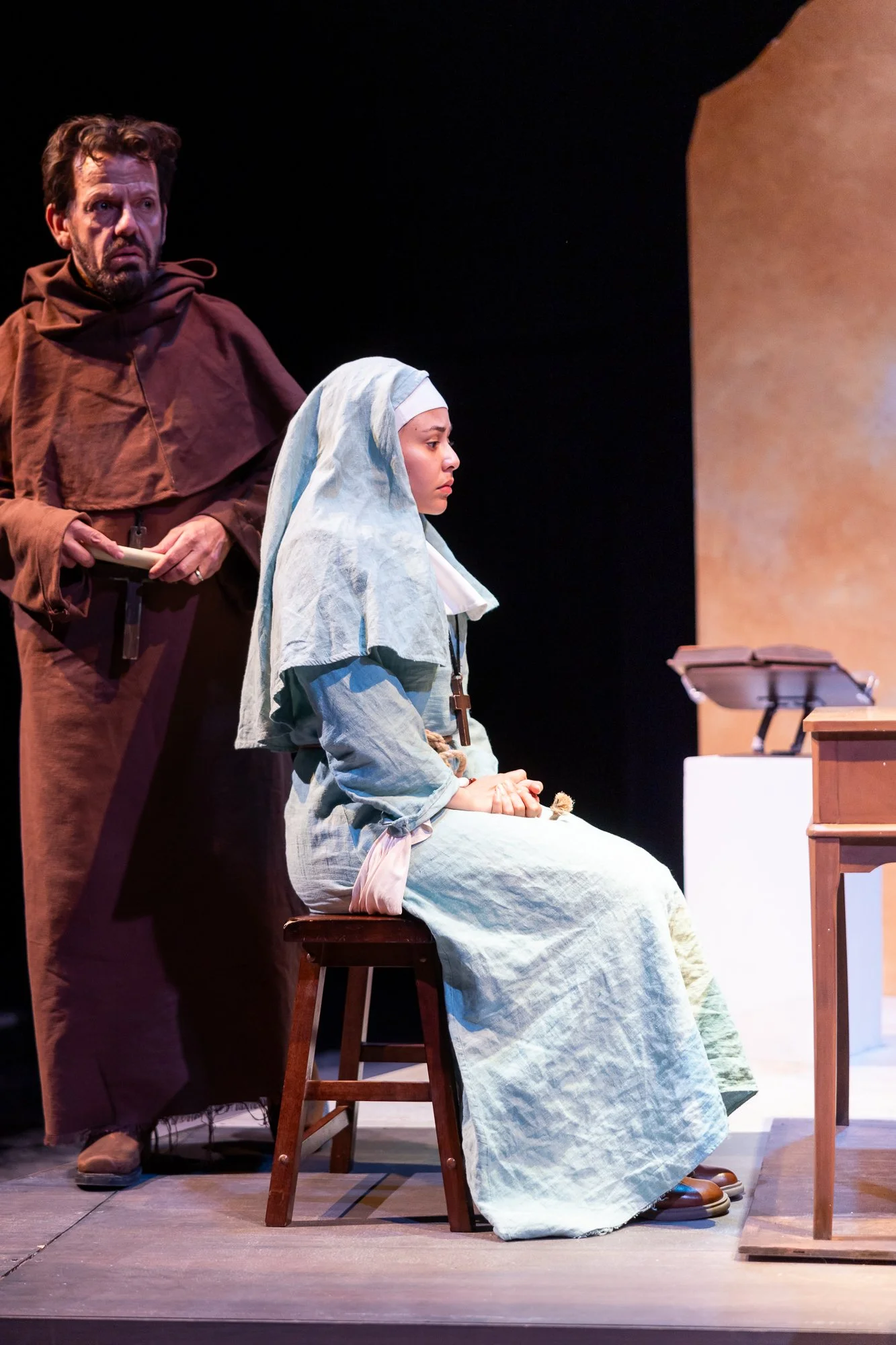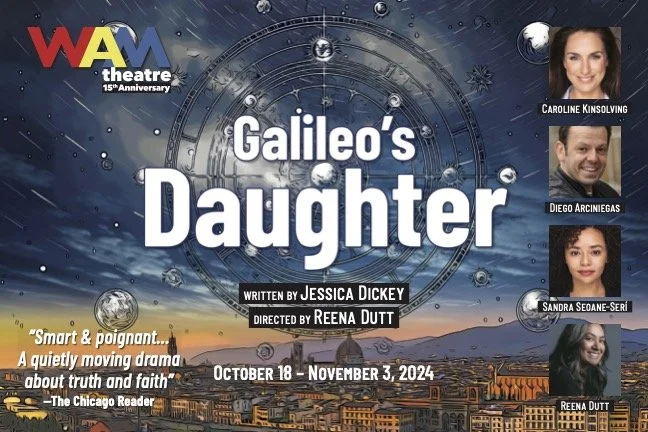NEWS & REVIEWS
•
NEWS & REVIEWS •
“Galileo’s Daughter” at Central Square Theatre
“Sandra Seoane-Serí‘s vividly alive performance as Maria Celeste, Galileo’s eldest daughter, who was born out of wedlock. Her intensely committed portrayal…makes a strong case.”
—Don Aucoin, The Boston Globe
“Galileo’s Daughter” at Central Square Theatre
“Seoane-Serí’s performance was easily the best part of this production…She shines, playing Maria Celeste with a captivating verve that doesn’t let you look away. If she had been the star, as the title suggests, this would have been a knockout show.”
—Madeleine Aitken, Cambridge Day
REVIEW: “Galileo’s Daughter” Produced By WAM Theatre
“Seoane-Seri is also put through her paces as she spans the two centuries, in addition to playing Galileo’s daughter. It is lovely to see her as Sister Maria Celeste finding her calling in that terrible convent and describing her joyous relationship with another nun. She is convincing in her scenes with Galileo, loving him, frightened for him, desperate to share his work as her character matures and develops her own reputation.”
—Barbara Waldinger, Berkshire on Stage
WAM Theater Presents “Galileo’s Daughter”
“Rattled by a personal crisis, a playwright flees to Florence to study the letters between Galileo and his eldest daughter Maria Celeste…Artistic Director of WAM Theatre, Genée Coreno, is here now to tell us more – along with actor Sandra Seoane-Serí, a freelance film and stage actress based in Boston and New York – playing Maria Celeste in Galileo’s Daughter.”
—Sarah LaDuke, WAMC Northeast Public Radio
A ‘Romeo and Juliet’ for people who think they know ‘Romeo and Juliet’
“Sandra Seoane-Serí, as Tybalt, seethes with so much anger, the air fairly crackles every time her character appears on stage. This Tybalt is so driven by hatred and revenge, he simply can’t exist without it.”
—Terry Byrne, The Boston Globe
ROMEO AND JULIET (Actors’ Shakespeare Project at Calderwood Pavilion in Boston)
“Seoane-Serí does a great job gender-bending the role, a reversal of the bard’s practice of having men play female roles.”
—Leslie Rosenburg, Stage and Cinema
Not Your Parents’ ‘Romeo & Juliet’ by Actors Shakespeare Project
“Sandra Seoane-Seri was sensational as Tybalt”
—Linda Chin, Theater Mirror
“BLKS” — Fun, Heartbreaking, and Thought-Provoking
“As Ry, Seoane-Seri grounds the group, but we never forget that the character is devoted…”
—David Greenham, The Arts Fuse
WAM Theatre’s almost perfect ‘Pipeline’ is strong, moving, makes you think
“Omari’s girlfriend of the moment is Jasmine, played here by Sandra Seoane-Seri. Jasmine is an available girl, one who gets by using her wit and her attractiveness with equal parts of panache…she also delivers the lines Morisseau has given her with a straightforward attitude that deserves the laughter she receives and the applause she generates…Seoane-Seri delivers her to the audience as a packaged, marketable youngster whose future should bring her something better.”
—J. Peter Bergman, The Berkshire Edge
Dramaturgical Work with College-Aged Artists around Race and Whiteness
“In our current political climate, theatremakers are seeking better ways to address systemic violence and discrimination within our own industry and US arts education institutions, which sometimes unintentionally devalue People of Color (POC) artists’ culturally rich identities and perspectives. However, what methods and tools can we provide young artists if many mainstream US theatres and arts education programs affirm, develop, and produce mostly white American-European theatre?”
—Essay by Gaven Trinidad for Howlround Theatre Commons








